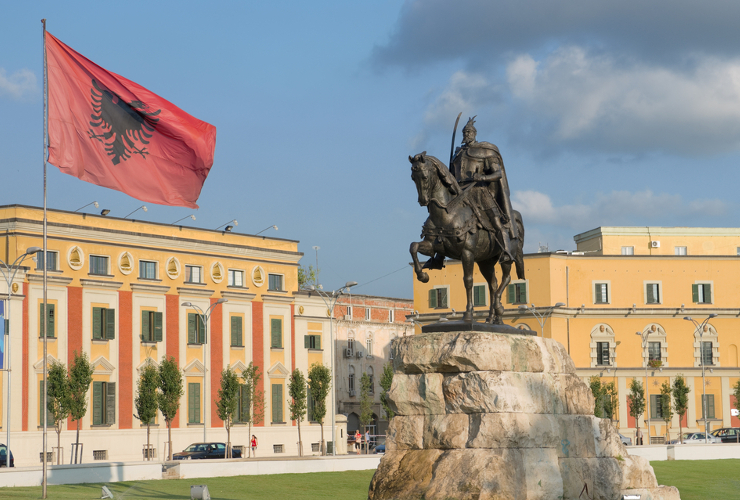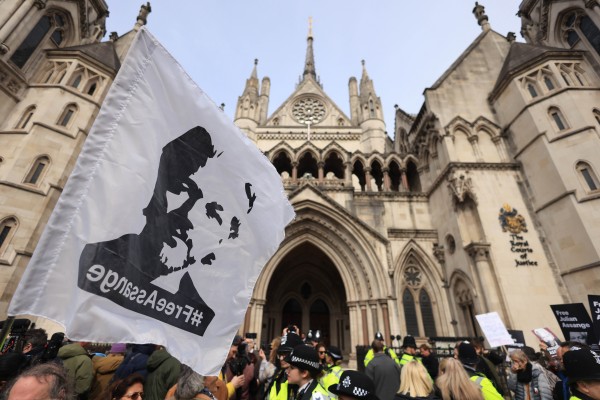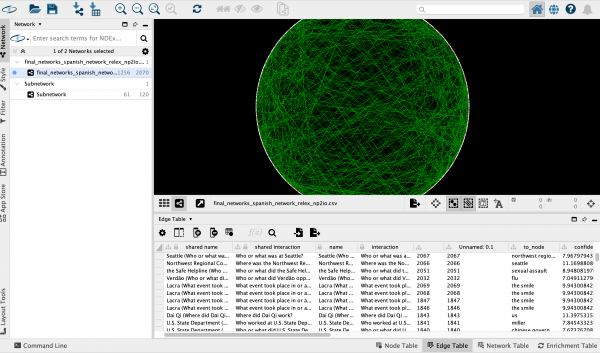For almost 50 years, Albania was in the grips of a brutal Communist regime. After it fell in 1990, the first independent media began to navigate a complex social and democratic situation. Over the past 30 years, the sector has grown to include hundreds of online portals and tens of TV stations. Despite this, Albania is still struggling to break free from some constraints of its past, and its media environment is plagued with obstacles and pressures.
Last December, I conducted a poll amongst my peers and found that almost 100% said they’d experienced political pressure while performing their work. This included threats not to publish a story, demands to take down articles, and even threats against safety. While this is a reality for many journalists and can come from every side of the political spectrum, it’s exacerbated by the behaviour of Prime Minister Edi Rama.
An artist-turned-politician, Rama is creative with his insults and has publicly called journalists parasites, ignorant, trash, dogs, human rights abusers, and poison. During the first weeks of the COVID-19 pandemic, his voice played on people’s mobiles before they made a phone call. He reminded them to wash their hands, wear masks, and protect themselves from the media.
He and his cabinet have also filed a concerning number of libel lawsuits against journalists- 34 lawsuits in just two years. Not only does this intimidate the plaintiff, but it also has a chilling impact on reporting from other journalists. But the government hasn’t stopped there.
In 2018, Rama announced the so-called “anti-defamation package” that would bring all online media under the control of a parliament-appointed board. This board could block, fine, close, and enforce corrections on any site that it believes publishes ‘defamation’ or ‘fake news.’ His reasoning for introducing the law was to combat fake news, though many think it will be weaponised to silence critics.
The package was widely condemned, and the Venice Commission issued an opinion on the draft, noting it would have a “chilling effect” and should essentially be scrapped.
While this law sits in parliament, the government changed provisions in the electoral code, allowing them to shut any TV station for 48 hours if they breached certain conditions during electoral periods. They also proposed increases to criminal defamation penalties, including fines of up to EUR 36,000 (the average Albanian salary is EUR 350 per month), and that punishments should be increased by half if people insult a politician, judge, or administration employee. This runs directly counter to long-standing European Court of Human Rights jurisprudence that public officials must accept a higher degree of criticism than ordinary citizens.
Tightening control
Just before the elections, in the absence of parliamentary opposition, the Socialist Party voted to install Armela Krasniqi, a former party communications aide, as the head of the agency that would supervise all online media. The EU delegation in Tirana, and various international organisations, including IPI, asked the parliament to wait until September when the opposition would be present, but they refused.
After Rama’s party secured a third mandate to rule in April 2021, their first decision was to create the Media and Information Agency, which would prevent individual ministries from communicating with the media. Instead, all communications, plus statements, information, and comments would come from a centralised agency, under the control of Rama’s right-hand communication aide Endri Fuga. This agency would also monitor local media and mass media to gauge public opinion of the government.
The news sparked outrage amongst local and international media stakeholders, who called on the EU to intervene. They asked for improvements in media freedom and for the withdrawal of the draft law and media agency to be conditions for continued EU accession talks. The EU refused.
Then in October, at the OSCE South Eastern Europe Media Freedom Conference, Rama compared the online media to “Nazis” and “paedophiles”, adding that regulating them was necessary, even if wanting to do so made him unpopular.
Concerns abound that through a series of stealthy legal and administrative changes, the government is moving to assume total control of the media. This, combined with an increasingly hostile environment which includes police violence against media workers, and impunity for attacks, causes journalists to worry.
All of these complexities take place in a country where independent journalists struggle to be heard. Most mainstream media is owned by a handful of wealthy businesspeople with political connections. With interests in construction, real estate, and private schools, they use their media to win favourable treatment from the government, including tenders and funding.
This means that the editorial line of the main media is controlled by a need to remain on the good side of the state. Fake news, propaganda, and smear campaigns are common. Simply put, the vast majority of Albanian media can be weaponized by political figures at a moment’s notice, vastly impacting the information that the general public receives.
Those journalists that do speak up are at risk of being targeted via smear campaigns. I was branded a Russian spy and had my residence permit revoked while six-months pregnant, all because I reported on corruption and anti-government protests. This is a common occurrence and more often than not, the targets are women.
To write about the intricacies of the Albanian media environment would take up many thousands of words. But amid all these issues, there is growing resistance. Solidarity, self-regulation, and possible EU accession all present hope for Albania’s journalists. Furthermore, a desire for change, fuelled by accountability and transparency creates a new generation of journalists who are not so easily controlled.
This is a guest post. Any views expressed here are those of the author and not necessarily of IPI.




